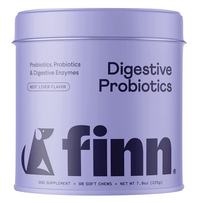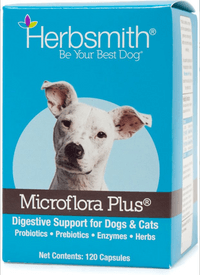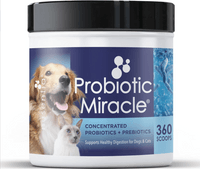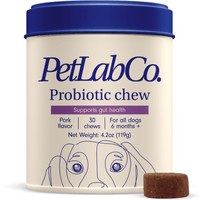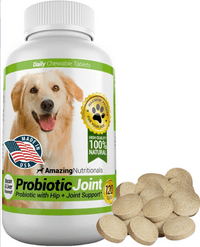We recommend products based on thorough research by real people and real pets. Guided by experts, we spend hours looking into every product and perform unbiased testing on the factors that matter.
We then present you with a clear take of the top products so you can make the best decision.
What are Dog Probiotics?
You’ve probably heard that healthy bacteria are good for your digestive system (and overall health), but what about probiotics for dogs? Whether to help treat a specific digestive issue or just generally improve gut health, a good dog probiotic can do wonders for your canine companion.
However, if you’re new to the world of probiotics, it can be confusing trying to pick out the right supplement for your dog. From selecting the correct strains of bacteria to thinking about colony-forming units, knowing some key information can help the whole process feel less baffling.
FAQ
Q. Can I give my dog human probiotics?
A. While it’s unlikely that human probiotics will contain anything that will harm your dog, they aren’t designed to meet the needs of canines. As such, it’s best to stick to probiotics formulated specifically for dogs.
Q. Do dog probiotics have any side effects?
A. It’s not uncommon for probiotics to cause some gas and bloating, but this isn’t cause for concern unless it seems to be causing your dog any discomfort, and usally goes away as your dog's digestive system adapts to the beneficial bacteria probiotics provide. If your dog vomits, has diarrhea, or exhibits any other side effects after you’ve given her probiotics, discontinue use and consult your vet.
Q. Should I give my dog probiotics with food?
A. It’s fine to give most dog probiotics with food, though do check the directions as some should be taken on an empty stomach. If you mix your dog’s probiotics in with food, make sure the food is either cold or just slightly warm as heat can kill beneficial bacteria.

